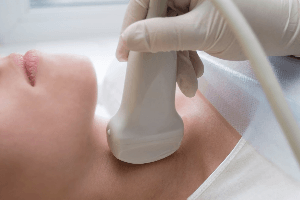Gastrointestinal Systems and Cancer
Admin • March 3, 2021

If members of your immediate or extended family suffer from stomach, liver, colon, or another cancer of the digestive system, you may wonder if cancer will eventually affect you as well. Although some gastrointestinal (or GI) cancers run in families, not all cancers do. Some cancers develop because of other factors, including smoking and age.
Learn more about gastrointestinal cancer and how to detect it below.
How Does Gastrointestinal Cancer Affect People?
Gastrointestinal cancer describes a large group of diseases that affect the organs in your digestive system. Your digestive system includes your stomach, pancreas, intestines, liver, esophagus, colon, and anus. These critical organs play a large role in how well your body processes food and eliminates waste.
Sometimes, the cells inside your digestive system malfunction or change how they work. If the cells grow out of control, they may potentially become cancerous over time. The cells can also form abnormal growths called tumors inside or on your organs. Tumors can be as tiny as a pea or as large as a lime, depending on their location.
Cancer cells can develop from a number of potential causes, including cigarette smoking, an unhealthy diet, and aging. Cigarette smoking, in particular, changes how your cells look and function. In addition, according to a study by the Norwegian Institute of Public Health, female smokers are more at risk for gastric-related cancer than males.
Other factors that may place you at risk for gastrointestinal cancer include:
- Obesity
- Consuming large amounts of alcohol
- Maintaining a diet high in salt, sugar, and fat
Although not all cancers of the GI system cause noticeable symptoms, some individuals can experience:
- Rectal bleeding or bloody stools
- Stomach cramping or pain
- Weight loss or poor appetite
- Nausea accompanied by vomiting
If cancer develops in your esophagus (or throat), you may experience intense heartburn, halitosis, or pain. Some people may confuse these symptoms with acid reflux disease, which is another common, but noncancerous, condition of the digestive system.
If you begin to notice unusual changes in your digestive system and can't determine why, consult a medical doctor immediately.
What Should You Do If You Suspect a Problem?
A doctor will generally want to test your blood, stool, and urine to determine whether or not you have gastrointestinal cancer. Cancer can change the number of cells in your blood, the color of your stool, and the odor of your urine. If your laboratory samples return positive for cancer, a physician may examine your further.
One of the tests used to diagnose or confirm cancer of the GI is a colonoscopy. A colonoscopy allows a medical doctor to examine the texture, condition, and appearance of your internal GI organs. The diagnostic test may also reveal abnormal clumps of cells, or tumorous growths, along the smooth muscles of your organs.
Doctors can also use colonoscopies to obtain tiny samples of your cells and body tissues. Medical staff refer to the samples as biopsies. Biopsies can reveal a great deal about your digestive system, including the extent of a cancer and its location.
After completing the test methods above, a physician can determine your course of treatment. If your condition isn't cancerous, a doctor may offer advice on how to change your diet and lifestyle habits. You may need to see a doctor for regular GI checkups as well.
If your condition is cancerous, you may need to undergo specialized treatment to protect your health. Some doctors remove cancerous tumors with surgery or chemotherapy. Your doctor can discuss the options you have for your particular situation after your exam.
If you want to learn more about gastrointestinal cancer, including how it affects your life, call and request an appointment at Hampstead Medical Center PC
today.

The IUD, or intrauterine device, is one of the most effective methods of birth control available. Unlike birth-control pills, you do not need to remember daily to administer medication, and the device itself lasts longer than shots and is easier to use than rings. Many women find all of these benefits desirable for a birth-control method. There are two general types of IUDs available to women. The first type is the copper IUD, and the other is hormonal. Which one is right for your personal birth-control needs?

Although the risk of cardiovascular disease increases as you get older, many people who die suddenly of a heart attack didn't previously know they had heart disease. That's why identifying risk factors for heart attack and stroke is so critical to cardiovascular health. Fortunately, with regular exams and the many types of screening tests available, doctors can detect early signs of heart disease.

Even if you've never had cause to doubt your thyroid function, if you're a female who has recently given birth, you may be at risk for thyroid issues. An estimated 12 percent of Americans deal with thyroid trouble at some point during their adult lives, and women are significantly more likely than men to develop a thyroid-related ailment. Unfortunately for new mothers, many of the most common signs of an underactive thyroid (like weight gain, mood swings, fatigue, and irritability) are also quite common for those dealing with a newborn's frequent night wakings and the realities of a post-partum body. Read on to learn more about some common (and not-so-common) signs that you could be dealing with a pregnancy-induced thyroid problem as well as some treatment options that can be safely administered or performed while you're breastfeeding. What Can Cause Thyroid Problems During Pregnancy? As with many other hormonal disorders, there are often more questions than answers when it comes to thyroid function. However, researchers have pinpointed a few factors and health conditions that can raise the risk of a woman’s developing a thyroid issue during or immediately after pregnancy. For example, while only around 7 percent of women are at a general risk of developing postpartum thyroiditis, this risk increases to 25 percent for women who have Type 1 diabetes or who dealt with elevated antithyroid antibodies during pregnancy. Women whose anti-peroxidase (anti-TPO) antibodies were elevated during pregnancy may have a 1 in 2 chance of developing postpartum thyroiditis, and those who have dealt with thyroid issues in the past (or during previous pregnancies) also deal with a significantly increased risk. In other cases, thyroid problems may have no cause that can easily be pinpointed; the rush of various hormones during pregnancy and the strain they can put on various systems, including the endocrine system, can create a sort of "perfect storm" in which thyroid problems may thrive. What Are Some Signs You're Dealing With Post-Pregnancy Thyroid Issues? Thyroid problems can take a number of forms, including hypothyroidism (an underactive thyroid), hyperthyroidism (an overactive thyroid), Graves' disease (an autoimmune condition that causes goiter), or Hashimoto's disease (an autoimmune condition in which the body's immune system attacks healthy thyroid cells, eventually stopping all thyroid function). The signs and symptoms for each thyroid disorder are unique and often at opposite sides of the spectrum. For example, hypothyroid patients often report being cold, having dry skin, sleeping more than normal, or gaining weight without trying while hyperthyroid patients sweat profusely, suffer from insomnia, and can lose a significant amount of weight in a brief period. Postpartum thyroiditis often manifests as either an underactive or overactive thyroid, which usually normalizes itself in a few months. Symptoms lasting longer than that or that appear to be getting worse may necessitate medical intervention. What Treatment Options for an Underactive Thyroid Are Best for New Mothers? Whether you suspect you have postpartum thyroiditis or have been formally diagnosed, you may be worried about how your potential treatment options could impact your ability to breastfeed and what effect (if any) they might have on your child. Fortunately, there are a number of effective options from which to choose. If your postpartum thyroiditis is deemed autoimmune in origin, there is some evidence that taking selenium supplements could help normalize your thyroid function without requiring you to take hormonal medication (which might pass into your milk supply). If your symptoms aren't severe and don't impact your daily life, you may instead opt for watchful waiting, maintaining contact with your doctor and reporting any worsening symptoms but avoiding medication or other treatment for the time being. However, if your doctor recommends supplemental thyroid hormone, this usually means some intervention is necessary to prevent permanent damage to your thyroid and the organs and systems that depend on a steady dose of hormones. Make an appointment with Hampstead Medical Center PC to get started taking care of your health.







